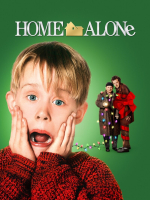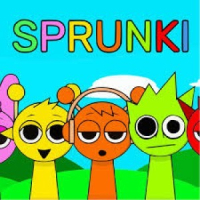Home Alone
It's interesting how some movies manage to create not just moments of entertainment but vivid landscapes of imagination that stay with us long after the final credit has rolled. Home Alone is undoubtedly one of those films. I remember watching it for the first time as a child, my eyes wide with a mixture of disbelief and delight. The very notion of a child, left to his own devices, defending his home from bumbling burglars felt exhilarating. Revisiting it as an adult, I found myself peeling back layers to appreciate its cultural and narrative complexities.
Abandon, responsibility, and adventure blend into a captivating concoction that has, over decades, drawn audiences into its quaint suburban trappings. John Hughes' knack for capturing the whimsical essence of childhood fantasies is both its charm and, in some respects, its Achilles' heel. Yet, it remains a film that invites scrutiny and admiration alike, not just for what it presents but also for the little nostalgia-kissed windows it opens into our own youth.
A Brief Dive into Its History
Released in 1990, Home Alone emerged at a time when family comedies were gaining traction and teenage angst-infused narratives dominated screens. Many attribute its success not only to John Hughes' storytelling prowess but also to a serendipitous timing in a burgeoning era of feel-good cinema. It was a film that primarily celebrated the precociousness of youth while gently admonishing adult oversight—a theme resonant enough to win over audiences globally.
Directed by Chris Columbus, whose deft hand later shaped the likes of Harry Potter, the movie's formulaic yet irresistible charm lies in its simplicity. Set in the picturesque Chicago suburbs, the film transports viewers into a veritable battleground, albeit through the imaginative purview of an eight-year-old. It's a slice of Americana, replete with Christmas charm and humor, which has ensured its place in the annals of enduring holiday films.
Why It Captivates
What makes Home Alone so irresistibly interesting is its grounding in an almost universally relatable fantasy—being left home alone. It's a scenario that embodies a mix of trepidation, freedom, and mischief. As a kid, the thought of absolute independence, devoid of parental oversight, is both daunting and delightful. The film captures this duality effortlessly, making it not just watchable but an experience to be lived vicariously through Kevin McCallister's adventures.
Beyond the surface, the movie subtly nests themes of self-reliance, ingenuity, and justice. Kevin's tactical genius and ability to outwit the bumbling burglars injects a sense of empowerment in the youthful audiences while offering comedic relief to the adults. These elements, along with festive undertones, render the movie an enticing package that continues to draw generations.
My Personal Impressions
Watching Home Alone again after so many years, I found myself immersed in a wave of nostalgia. The film's setup felt like a comforting return to a simpler time when movies had clear lines between good and bad, right and wrong. Kevin's resourcefulness seemed not only plausible within the world of the film but made me muse over how far childhood imagination could stretch.
Macaulay Culkin's performance is as charming as I remembered, embodying the playful innocence and formidable wit that so defines Kevin's character. His intrinsic likeability transforms an otherwise implausible tale into one that continually tugs at heartstrings. Despite the film's whimsical excesses, Culkin's portrayal maintains a core of believability, endearing him to a diverse audience.
Kaleidoscope of Characters
It's not just Kevin that makes the movie tick; it's the supporting characters that add texture to this colorful canvas. Joe Pesci and Daniel Stern, as the hapless burglars, bring a slapstick humor that is surprisingly timeless. Their duo of thieves is more Abbott and Costello than real threat, turning potential menace into mirth.
I was particularly drawn to the character of Marley, the misunderstood neighbor. His arc, though brief, provides a critical emotional anchor that humanizes the story beyond its cartoonish escapades. His gentle redemption arc with Kevin remains a poignant subplot that elevates the overall narrative, speaking to deeper themes of familial reconciliation and community.
Visual and Musical Harmony
From a visual standpoint, Home Alone does an excellent job of creating a diverse range of moods that align beautifully with the narrative arc. The iconic empty house, draped in holiday decoration yet eerily quiet, acts as a perfect backdrop for Kevin's adventures. The elegantly laid-out booby traps evoke the elaborate creativity of children's imaginations.
Adding auditory depth, John Williams’ score punctuates the visuals with masterful flair. His compositions meld tension, play, and warmth into a soundscape that elevates the film experience significantly. Each musical segment feels carefully tuned to evoke the right emotion, drawing listeners deeper into the story.
The Comedy of Innocence
Within its delightful chaos lies a comedy deeply rooted in innocence and a good understanding of the human desire to laugh. The scenes where Kevin ingeniously thwarts the burglars range from clever to uproarious. It's a kind of simple, physical comedy that bridges generations, making it easily accessible to audiences both young and old.
Watching now, I chuckled at moments that played on predictable comedic timing yet found them all the more endearing. The comedy works because of its purity; there's nothing mean-spirited here, only sheer, unadulterated fun shaped by a child’s sense of justice and adventure.
The Limitations of Farce
However, one cannot ignore the implausibility that shadows the film's narrative. It stretches credibility to think an eight-year-old could construct such elaborate defenses without hesitation or error. These moments, while entertaining, feel starkly detached from any real semblance of childhood capability, drawing occasional groans amidst the guffaws.
Yet in the world of Home Alone, this stretch is permissible. It's a fantasy calibrated to entertain rather than reflect reality. But at times, I found myself yearning for narratives that could have explored the more realistic anxieties a child might face when truly left alone, allowing for a deeper exploration of Kevin’s emotional journey.
Touching on Themes of Family
Despite its primary focus on comedy and adventure, the film never loses sight of what anchors its heart—family. As Kevin begins to miss his family, there's a beautifully woven layer of sentiment that explores the essential dynamics of familial bonds often overlooked during squabbles and holiday ruckus.
There's a gentle reminder that amidst the chaos and hilarity, the strength of the film lies in its portrayals of love and forgiveness. Kevin's reconciliation with his family, especially his realization of their importance, injects warmth and depth, transforming the film into something more than just holiday entertainment.
Social Commentary and Reflection
Watching through a contemporary lens, Home Alone reveals layers of social commentary on neighborliness and community that echo subtly throughout. The portrayal of Kevin's family and the McAllisters' chaotic lifestyle can be viewed as a critique of the fast-paced existence that leads to critical oversights.
The film beckons introspection: How present are we in our daily lives? It raises questions about connectivity and awareness within familial and communal constructs. Sometimes, the loudest shock doesn’t come from Kevin’s traps but from the silence of being home, alone. It’s a theme that inadvertently asks audiences to reflect on their priorities.
The Holiday Spirit
Unquestionably, the film has become a staple of Christmas viewing, aligning itself firmly with the festive spirit. It does an exceptional job of seeding the elements of holiday magic without imposing them too heavily, offering a comforting embrace of tradition and newness combined.
The snow-lined streets, shimmering lights, and cozy interiors all cooperate to create a world that reflects both Christmas past and present. Watching it again felt like flipping through an album of cherished holiday moments—familiar yet always warm and inviting.
A Lasting Influence
There's no denying the cultural imprint left by Home Alone. Its influence can be seen in various films and media that attempt to replicate its formula of humor, adventure, and heart. It paved the way for sequels and endless holiday-focused narratives that strive to capture its magic.
More than anything, it has carved a niche for itself as a cultural touchstone, one referenced often in jest and homage alike. It's the kind of film that older generations introduce to younger ones, confident that its allure will translate across ages. I've seen its echo in everything from advertisements to pop culture references, a testament to its enduring charm.
Transformative Childhood Narratives
The film adeptly amplifies the narrative scope for children in cinema—not just as sidekicks or afterthoughts but as protagonists capable of steering the entire story. Kevin McCallister stands out as a symbol of childhood empowerment, shifting the lens through which young characters are viewed.
It ignites a spirit of adventure and resourcefulness, allowing children, like Kevin, to not just participate but thrive in scenarios traditionally dominated by adults. Watching Kevin navigate his obstacles rekindles a belief in youthful potential, offering a narrative where children can be heroes in their own right.
Conclusion
In revisiting Home Alone, I found joy not just in its humor and hijinks but in its comforting predictability—much like returning to a beloved book. It’s a film whose flaws are as much a part of its charm as its heartwarming highlights. For all its implausibilities, it succeeds in creating a magical realm where childhood creativity reigns supreme.
More than just a movie, Home Alone remains a nostalgic vessel that transports viewers back to their own adventures, reminding us all of the wonders and mischief of youth. Its timeless essence ensures it will continue to capture the imagination of audiences for years to come, with Kevin McCallister’s indelible resilience inspiring each new viewer with its mischievous spark.
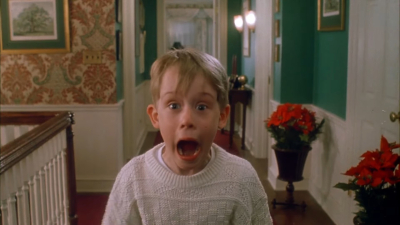

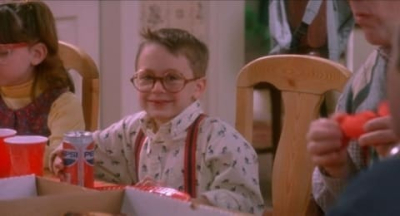
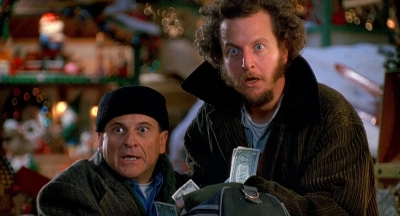
To download the app, you will get links to the Official Website and/or official digital markets.
